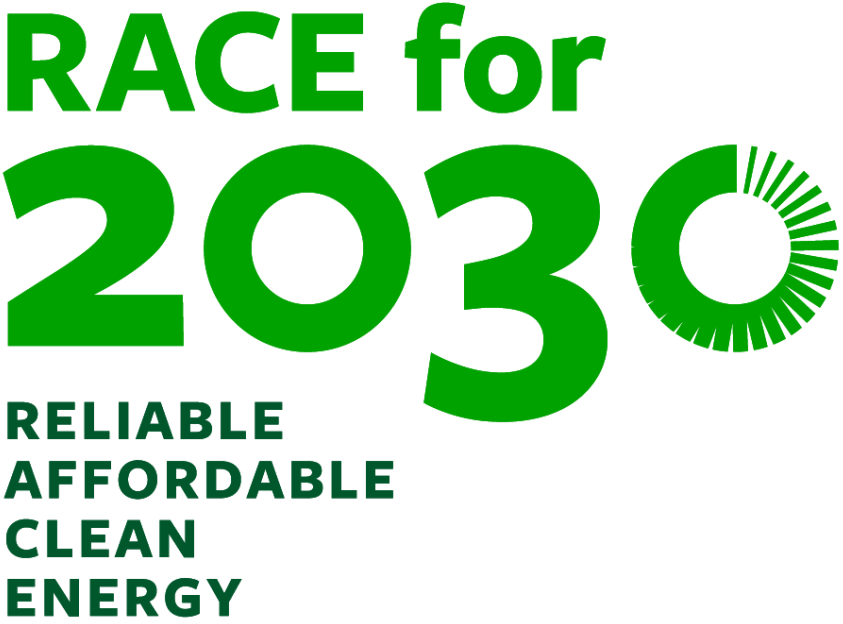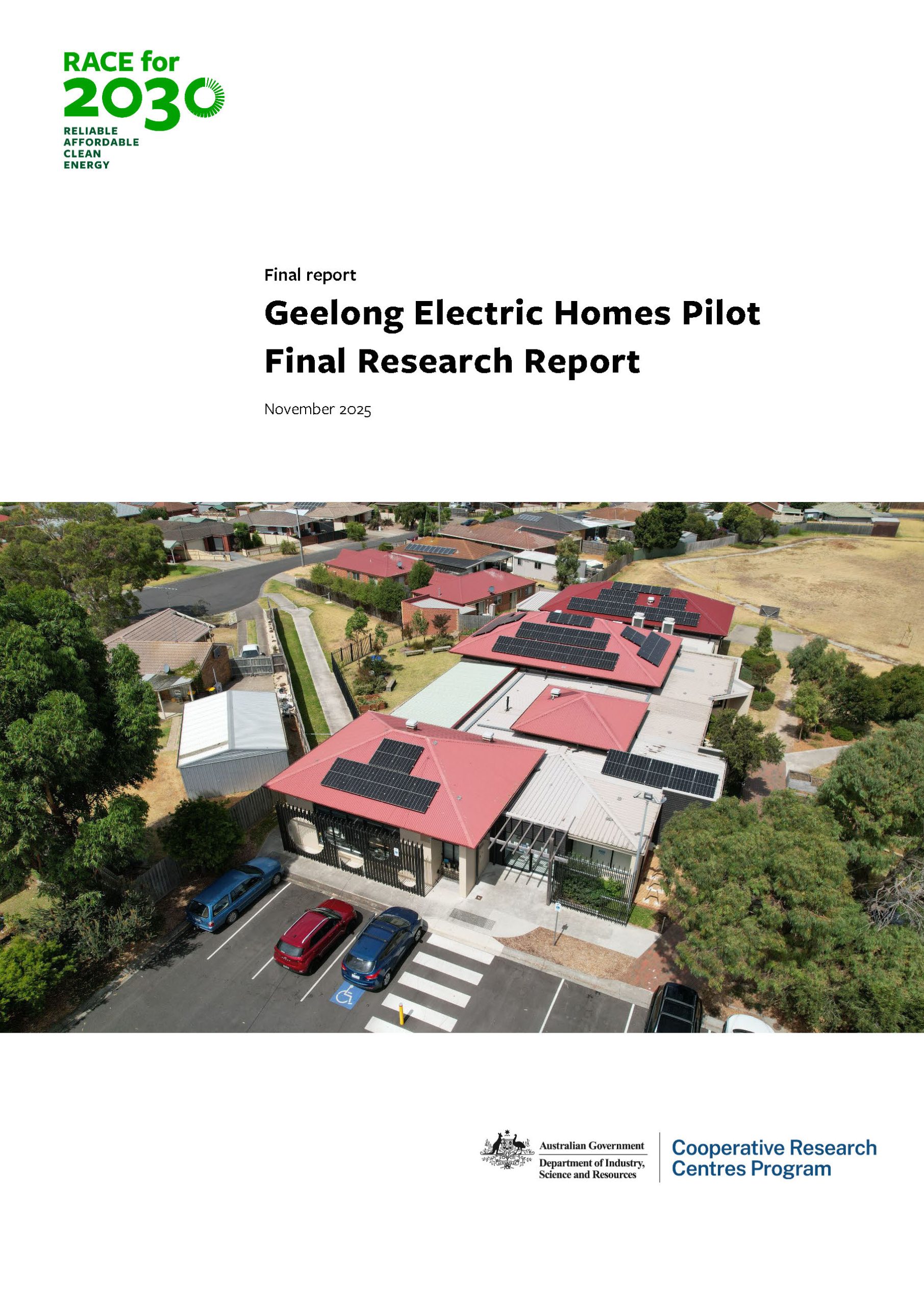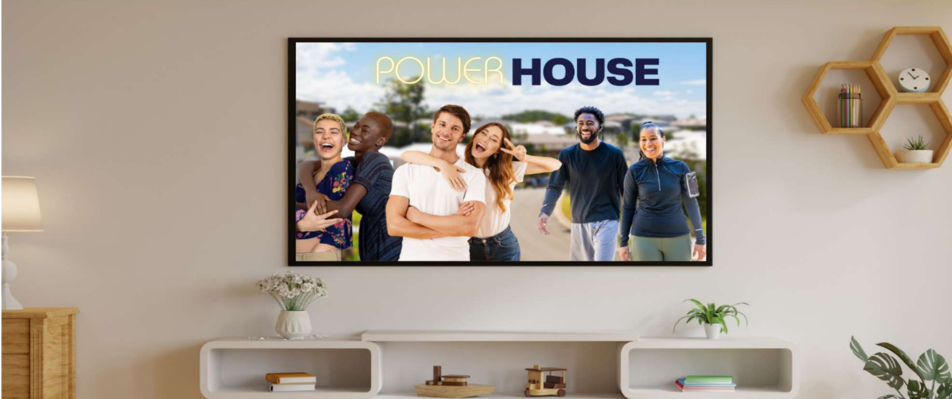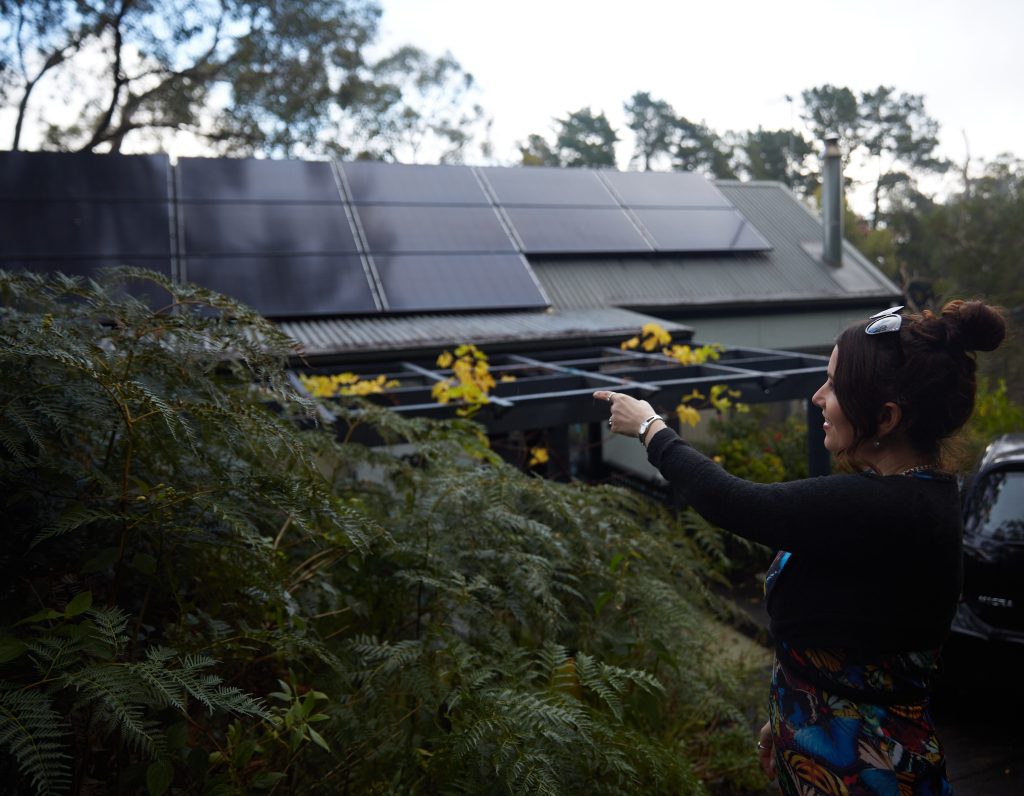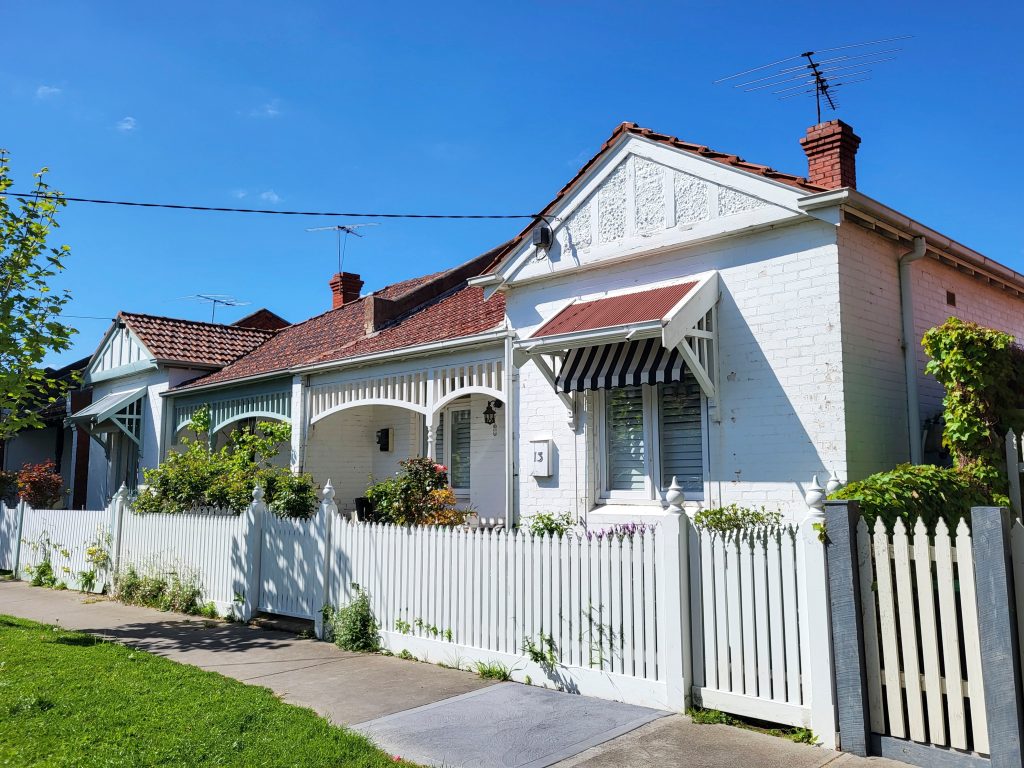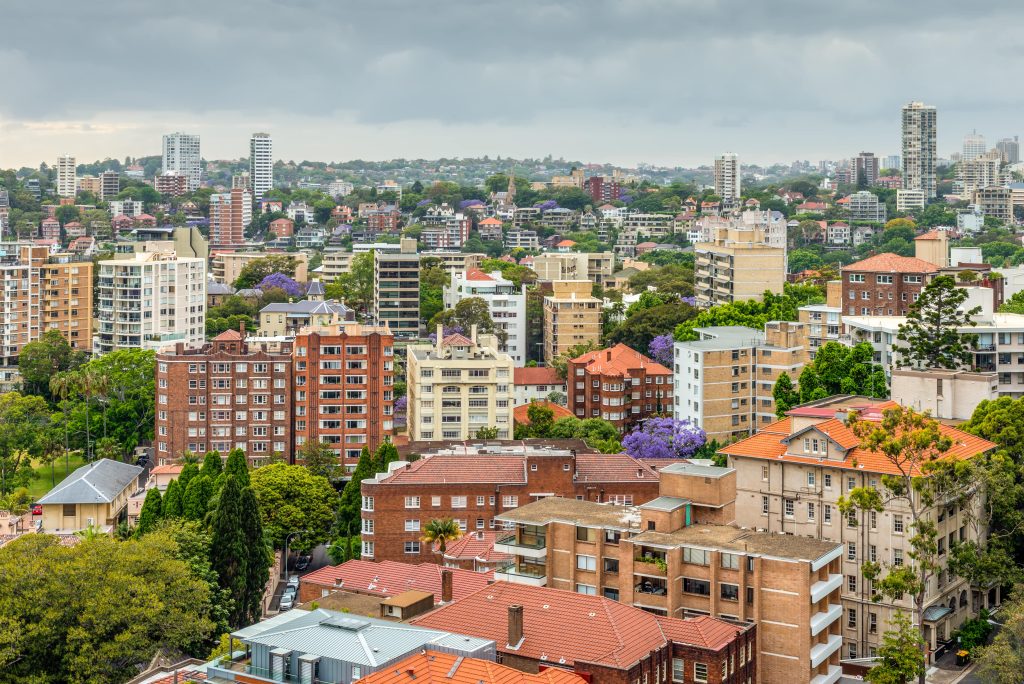Chief Investigators
Stage 1: Dan Cowdell (Geelong Sustainability)
Stage 2: Jane Spence (Geelong Sustainability), Jaime Comber (UTS)
Purpose of project
The Electric Homes Programs 2023 (Stage 1) and 2024 (Stage 2) in the Geelong region, conducted by Geelong Sustainability, have contributed significantly as pilot learnings for the RACE for Homes Energy Upgrades for Australian Homes (EUAH) project.
These two Programs support residents in the Geelong and adjoining regions to improve the thermal performance of their homes and to transition away from gas. In addition to the City of Greater Geelong, other participating municipalities were the Shires of Surf Coast, Colac Otway and Golden Plains and the Borough of Queenscliffe.
These Electric Homes Programs have assisted home owners to upgrade their properties by offering a collaborative and coordinated community purchasing program, with different technologies and providers trialed in the different stages. That is, they have taken a lot of the guess work out for home owners about what upgrades to install and who to contract – and trust – locally.
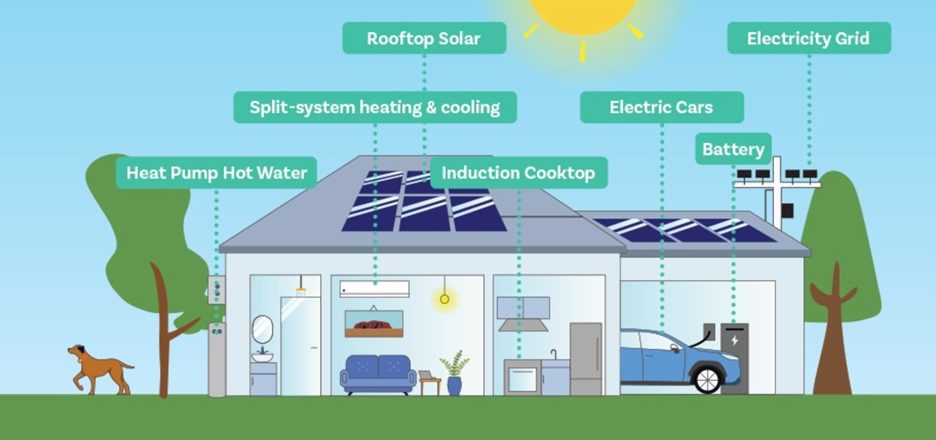
Image courtesy of Geelong Sustainability
Impact of project and outcomes
The outcomes of these two Geelong Electric Homes Programs pilots have assisted the EUAH project’s research objectives by sharing their approaches to trusted partner selection, different promotional approaches for each program, education offerings, and analysis of resident feedback with the research teams in the various EUAH work packages.
Stage 1 – 2023
Offerings in Stage 1 were Heating and Cooling Split Systems, Hot Water Heat Pumps, Solar, Solar and Battery Systems and Electric Vehicle Chargers.
Outcomes
● 1,500 attendees at events.
● 927 unique enquiries.
● 318 installed systems.
● The program stimulated $2,053,185 of capital investment.
● A total of $81,328 estimated to be saved annually on energy bills.
● 770 tonnes of Co2 emissions estimated to be reduced over a one year period, and 18,328 tons of Co2 emission reduction over the 25 year lifetime of the products.
● Community donations with 3 x 6.6kW solar systems and six hot water heat pump systems donated to Wathaurong Aboriginal Cooperative and Norlane Community Initiatives.
Stage 2 – 2024
The Stage 2 Program added Home Energy Audits, Draught Proofing, Home Insulation and Induction Cooktop Installation to the offerings.
Outcomes
- 658 households submitted expressions of interest (EOIs) in 2024, and 201 households completed upgrades; this was a 20% drop in households purchasing compared to 2023. This decline may reflect changes in program delivery, including reduced in-person engagement, a smaller communications budget, and a shift in audience. It may also reflect the wider range of upgrades available in 2024. These observations will be tested in the 2025 program.
- The household-level conversion rate was strong at 24% (the same as 2023), suggesting participants who expressed interest often went on to purchase at least one product.
- There were more products on offer and participants were more likely to express interest in multiple upgrades.
- Home energy audits (new) had the highest conversion rate (20%), followed by hot water heat pumps (19%) and solar/battery combinations (14%). Hot water heat pumps had the highest number of installations, followed by undertaking a home energy audit.
- 94% of participants were satisfied or very satisfied with their upgrade(s), with reported improvements in home comfort and bill savings.
- The program successfully reached new audiences in 2024 through revised messaging and broader communication channels. Messaging that focused on thermal comfort and bill savings—rather than electrification (focus of 2023 messaging) —achieved stronger reach beyond the established Geelong Sustainability audience.
- In the 2024 Program, participants were less likely to have heard about the program through Geelong Sustainability and more likely to have heard about the program via community groups, local media, and social networks.
Both pilots gave the researchers feedback on:
- processes used to engage delivery partners.
- the most popular products purchased,
- customer experiences,
- the likelihood of customers making other major electric purchases in the future
- program development and implementation processes
- community engagement, and
- processes used to engage delivery partners.
Ongoing work
Geelong Sustainability is continuing to work closely with the EUAH researchers as they help Ballarat City Council to deliver a similar education and upgrade program.
The team is also developing the research to be undertaken during the 2025 Geelong and region Electric Homes Program which is again targeting community engagement, and a new energy ‘concierge’ service to help remove barriers and engage a wider demographic.
Project partners – industry and research
Stage 1: Geelong Sustainability (Lead), with the University of Technology Sydney, CSIRO and Monash University, Borough of Queencliffe, City of Greater Geelong, Colac Otway Shire Council, Golden Plains Shire Council, Jeztek Plumbing, RACV Solar, Reclaim Energy, Surf Coast Shire Council
Stage 2: Geelong Sustainability (Lead), with the University of Technology Sydney and Monash University; Borough of Queencliffe, City of Greater Geelong, Colac Otway Shire Council, Enviroflex, ephe, Golden Plains Shire Council, Reclaim, Surf Coast Shire Council, Too Hot To Handle Heating & Cooling, Winki Solar
Published Report
Status
- Completed
Reports
Project Code
0614, 0948
